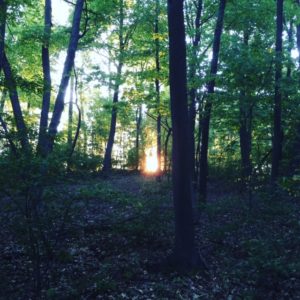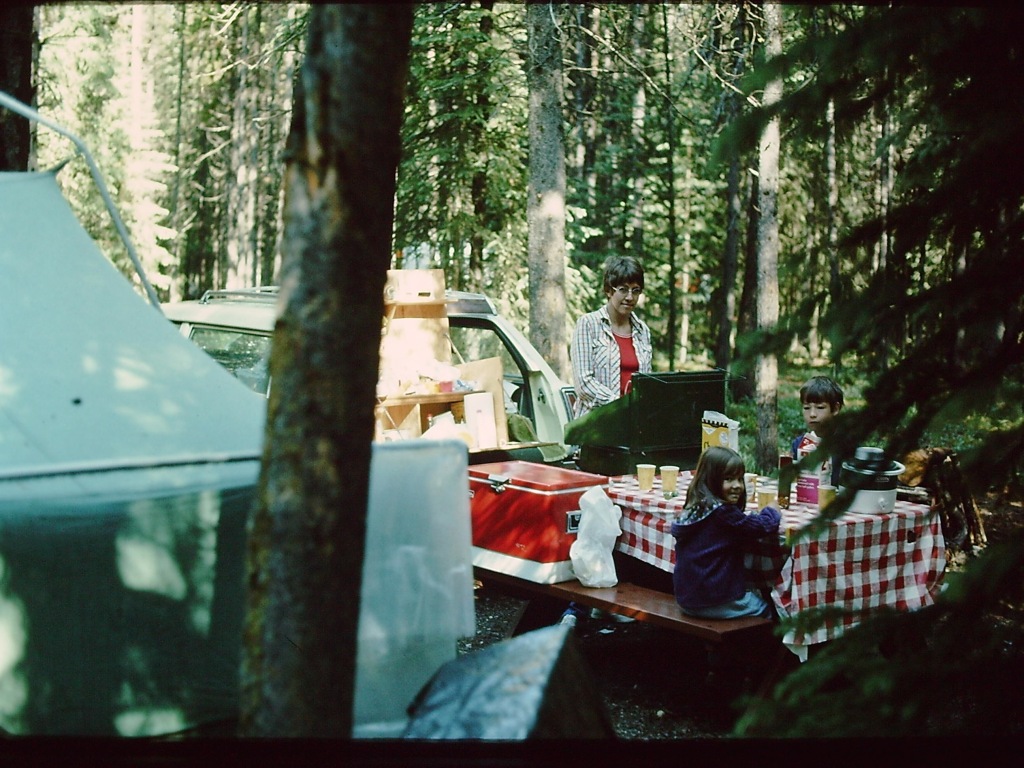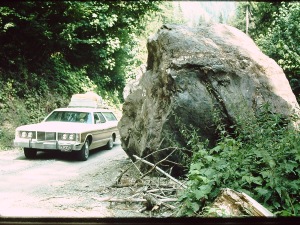There is the sound of a child who is not breathing well, the sound of inflamed airways, the sound of air-gulping. She comes into our room in the middle of the night, and my wife and I both sit up in bed.
“Abra, are you okay?” I ask, and she nods, because everything is always okay in Abra-land, even when things are not okay. But her eyes are open too-wide, and there is a little panic there, hidden in the blue.
“My breathing,” she says, opening her mouth and pulling in air, and we scramble for medicine, for the inhaler, and for the calming oils. There is the sound of her coughing, and the sound of her swallowing her medicine. There is the popping sound her inhaler makes, the misting psht, the ten long breaths.
We have been down this road before. There is a new bed on the floor beside ours. There is the sound of quiet breathing, then the sound of sleep.
* * * * *
We decide to flee the city for a few days, and we pack up the truck with food and a tent and sleeping bags. We drive south and get to the cabin that used to be our house, and we remember those quiet days in the forest. We take trip after trip into the woods, carrying our things like mountain climbers attending to base camp. Lucy helps me set up the tent while the boys make a few more treks and Maile and Abra collect firewood.
 It is cold and the wind rushes through the trees like a giant shushing us, reminding us this is holy ground. It was the house where we found our footing again after a long trip, the house where Maile miscarried a baby. It is the place where we were snowed in for three days, where Maile and I shoveled two feet of snow off the deck to keep it from collapsing.
It is cold and the wind rushes through the trees like a giant shushing us, reminding us this is holy ground. It was the house where we found our footing again after a long trip, the house where Maile miscarried a baby. It is the place where we were snowed in for three days, where Maile and I shoveled two feet of snow off the deck to keep it from collapsing.
We sit around the fire and my parents and two of my sisters surprise us by showing up and we laugh and eat s’mores and shift around the fire like the hands on a clock, avoiding the smoke. I remember the sounds of this place: dogs barking; a four-wheeler racing through the woods; a chainsaw starting up. But all of these sounds are muffled by distance, and if you’re not careful, you’ll miss them. They are, each of them, little messages from a different isolation.
My parents and sisters leave us as the sun is setting, as the cold rushes in over the hills. We quickly clean up the campsite and retreat to our warm sleeping bags in the tent, hoods up, eyes peeking out. Our son Leo crawls all over us, and our daughter Lucy reads Harry Potter to us. Her voice is like the voice of the last storyteller, clear and clean. When she reads, the faraway voices fade to almost nothing.
When we turn off the light, we can hear the wind, always the wind, rustling the soft spring leaves.
* * * * *
The sound of a cough wakes me up, and I hear labored breathing in the tent.
“Abra,” I hiss. “Abra.”
She rolls over and looks at me, and in the dim lantern light I can see her eyes are watery and tired.
“My breathing,” she says in a quiet, sleepy voice. I exit my sleeping bag, enter the cold air of the tent. I search through the bag, throwing out clothes, flashlights, a box of matches. I find the plastic bag that holds her medicine, her inhaler.
She holds the mask up to her face and !pop! goes the inhaler and then she takes in a deep breath, two deep breaths, three deep breaths, all the way up to ten, and (she knows the rhythm now, knows it without being reminded) !Pop! again, and again breathing up to ten. She takes a small dose of medicine. She crawls back into her sleeping bag, and I do the same.
I lie there for quite some time, staring up at the silhouette of leaves on the tent roof, placed there by the moon. Everything is still and Abra’s breathing calms and then the wind rushes through the trees again, thrashing the leaves around, reminding me to be still again, to listen.

